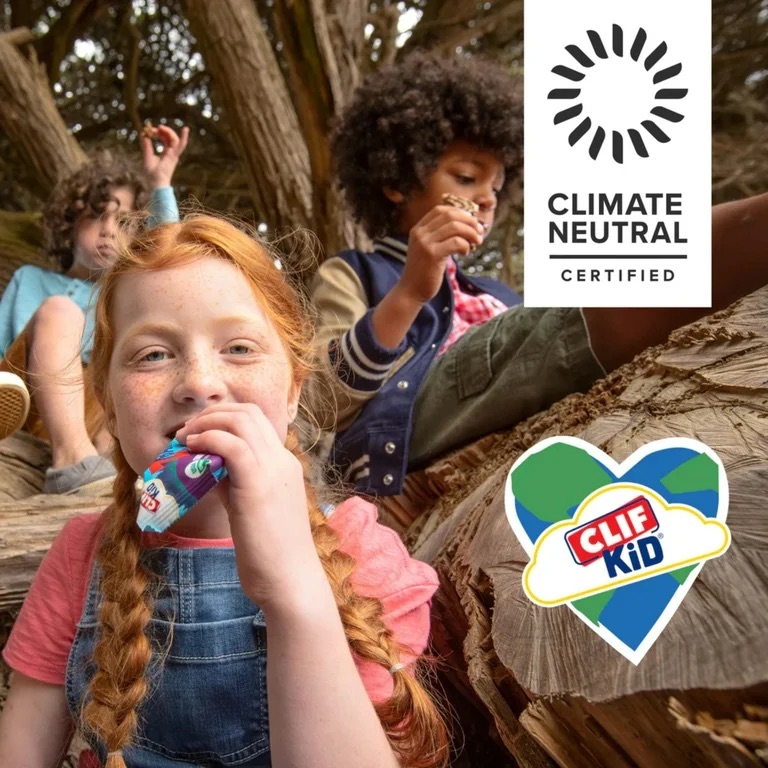
Confectionery giant Mondelēz International is facing a major lawsuit alleging that it falsely claims climate neutrality on Clif Bars, pushing offsets into further scrutiny.
As false marketing lawsuits on food companies continue to surge, Mondelēz International has found itself in hot water for the third time in just over 12 months over its claims on product packaging.
The CPG giant is facing a class-action lawsuit alleging that it falsely advertised its Clif Kid ZBar and ZBar Protein SKUs as “climate-neutral”, causing consumers to shell out extra money because they believed they were buying something sustainable.
Filing the complaint in the US District Court for the Northern District of Illinois, plaintiff Cynthia Salguero and her lawyers argue that Mondelēz’s claim is “false and misleading because the product’s manufacturing and distribution results in substantial carbon emissions, other greenhouse gas emissions, and harm to the climate”.
The complaint alleges that the manufacturing, marketing and transportation of the Clif Kid bars in question result in the emission of 54,000 tonnes of CO2e per year. According to the US Environmental Protection Agency, that equates to the annual emissions of about 12,600 gas-powered cars.
Mondelēz criticised for relying on carbon offsets

A key issue is the use of carbon offsets and credits to rely on the climate neutrality claim. These instruments are highly controversial, with most offsetting programmes linked to greenwashing and deemed ineffective.
The eco messaging on the Clif Bars is therefore “unjustified” due to the “fundamental flaws in the offsetting market and the kinds of projects in which [the] defendant purportedly invests,” the suit argues.
Some of the “foundational issues” with this market include inaccurate accounting, crediting offsets for projects that would have occurred regardless of the investment, non-immediate speculative emissions reductions that would occur over decades (at best), and impermanent projects that are subject to disease, natural disasters, and human intervention.
“Inaccuracy and fraud are widespread within the offset industry,” the complaint reads. “[The] defendant either knew or should have known of the fundamental unreliability of offsets, yet chose to rely on offsets in making its ‘climate neutral’ representation.”
Last year, the Integrity Council for the Voluntary Carbon Market – a watchdog for the industry – ruled that a third of all carbon credit projects based on renewable energy methodologies are ineligible. Around the same time, the Science Based Targets Initiative (SBTi), the de facto regulator of corporate net-zero goals, described carbon credits as largely “ineffective”.
Lawsuit highlights lack of clearly defined standards

The plaintiffs aren’t just seeking compensation from Mondelēz, but are demanding a jury trial and requesting declaratory and injunctive relief.
This is because the company’s statements “exceed the scope of mere puffery or a trivial marketing ploy” – in this case, Mondelēz is being accused of charging a premium based on the purported eco credentials.
Salguero and other customers would have reasonably believed that the “climate-neutral” label meant the product “does not exert a negative impact on the environment nor contribute to climate change or degradation”. Had they known that the claim was “not true”, they wouldn’t have purchased the products or would have paid “substantially less”, the complaint contends.
Indeed, as more and more people express concerns about climate change, they’re willing to pay extra for greener products. Nearly half of consumers (46%) globally are buying more sustainable items, and 80% are happy to pay more for them, according to PwC.
It raises the big question around climate neutrality: how do you define the term? According to the UN, it entails balancing emissions so they are equal to, or less than, the emissions removed. The plaintiff argues that, unlike “carbon neutral”, the term “climate neutral” isn’t as concrete, and can be interpreted widely by those without extensive knowledge about the topic.
A tipping point for food packaging?

This is why Mondelēz’s label fell into the “difficult to interpret” category of “unqualified, general environmental benefit claims” that the Federal Trade Commission’s (FTC) Green Guides warn companies against making.
The FTC itself is looking to update these guidelines to help companies avoid deceptive marketing, and to provide clearer definitions and greater consumer protection around terms like “carbon neutral” and “net zero” – although some fear that these changes may not materialise under the Trump administration.
The case could end up setting a precedent for future lawsuits around sustainability claims in food marketing, which will only continue to grow in number. Such legal disputes have been surging for a while now – in 2011, 53 class-action lawsuits related to food packaging were filed, but between 2020 and 2022, this rose to over 200 per year.
Mondelēz itself has been subject to two major lawsuits since the start of 2024. Early last year, it was accused of knowingly relying on child labour and slavery and deceiving consumers with packaging that claimed it “supports” or “helps” farmers. Later in the year, the company agreed to pay $12M to settle a claim that its Clif Bar packaging contained misleading health claims.
It’s also one of 11 defendants named in a lawsuit accusing the food industry of causing illnesses in kids by engineering ultra-processed foods to be as addictive as cigarettes.
With consumers more wise to greenwashing and lawmakers, from the EU to the state of California, strengthening rules around environmental claims, could this new lawsuit usher in a food packaging overhaul for the better?
The post Can You Trust A ‘Climate Neutral’ Label? Clif Bar Lawsuit Puts Food Marketing on Trial appeared first on Green Queen.
This post was originally published on Green Queen.